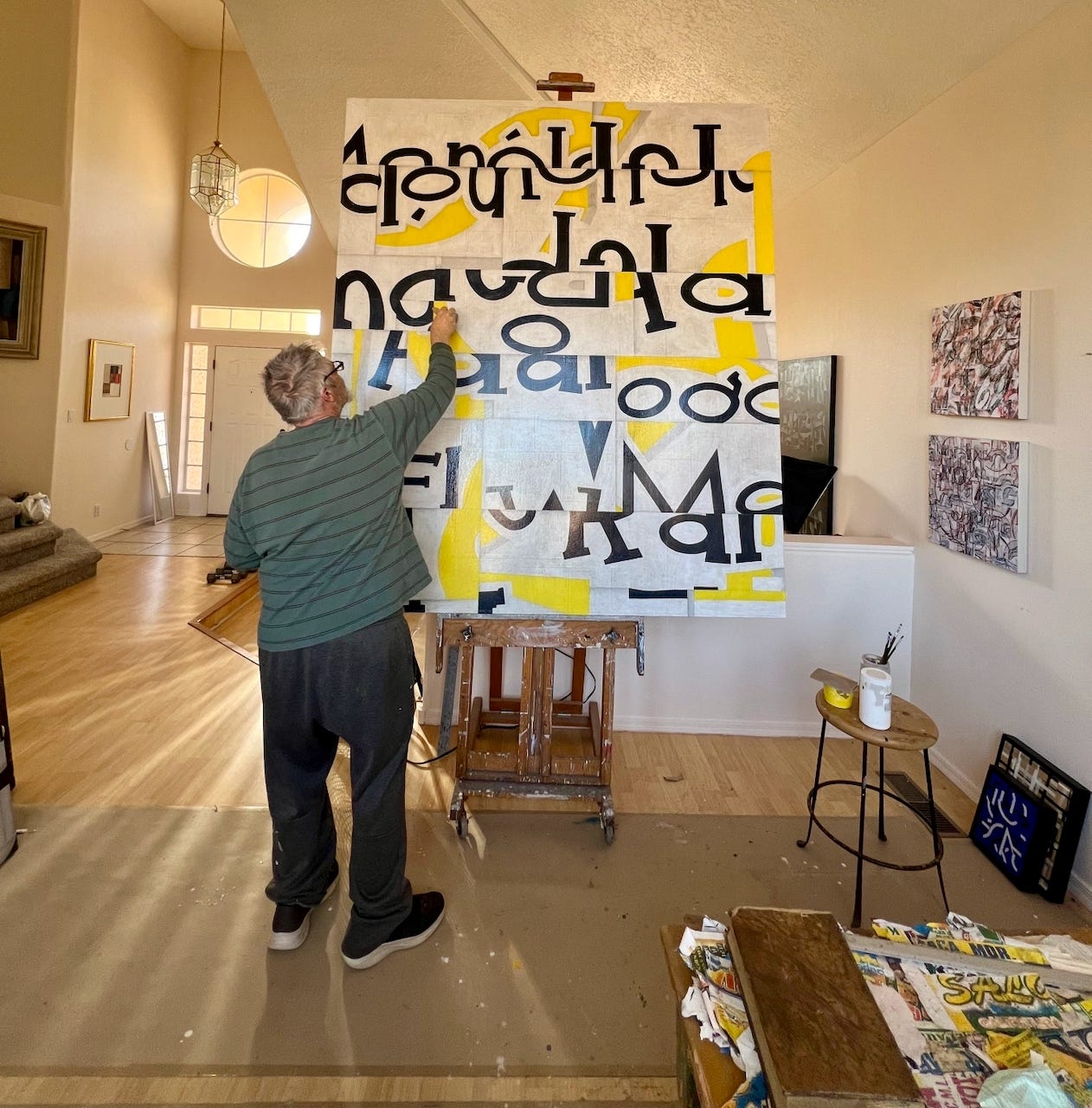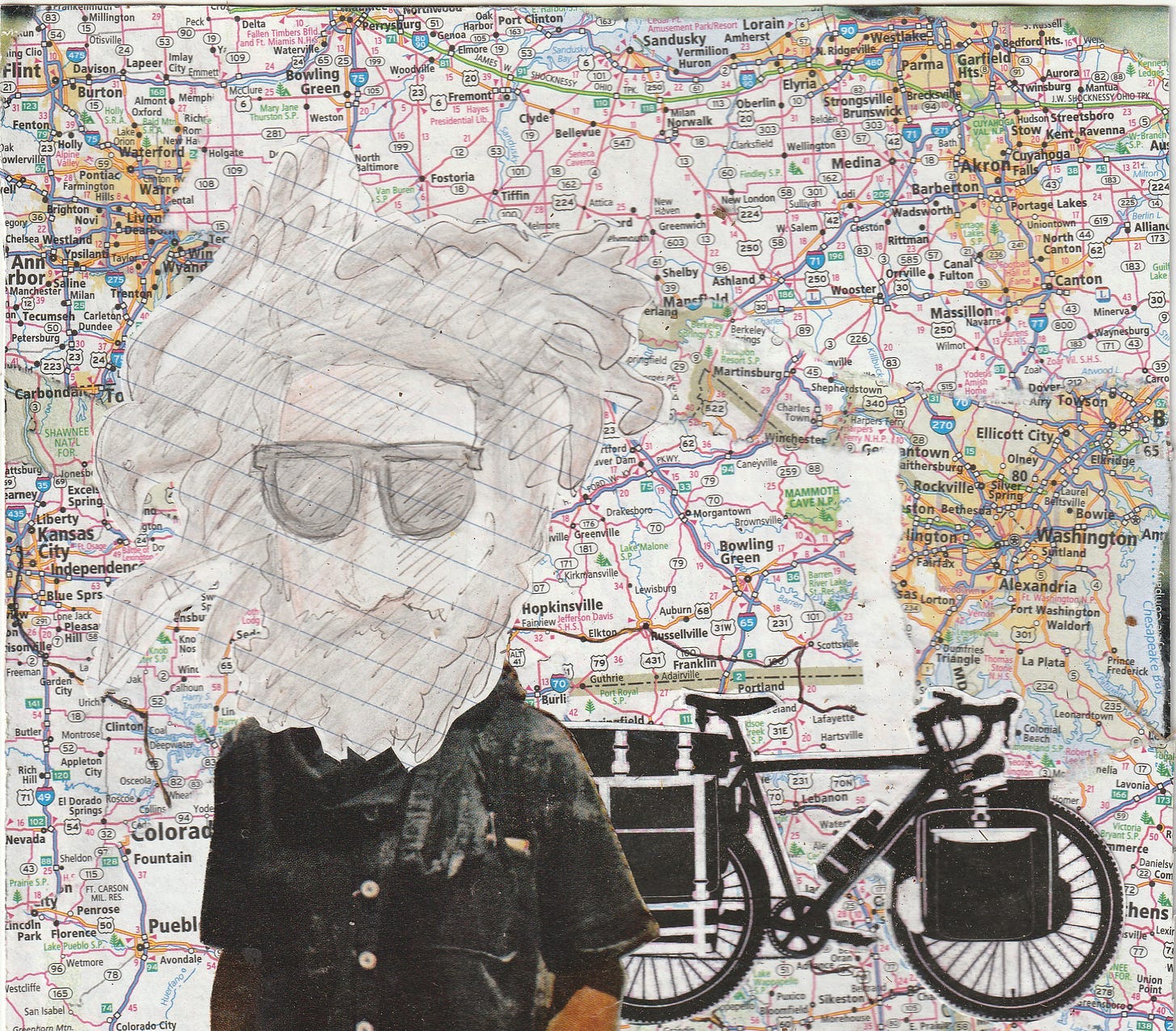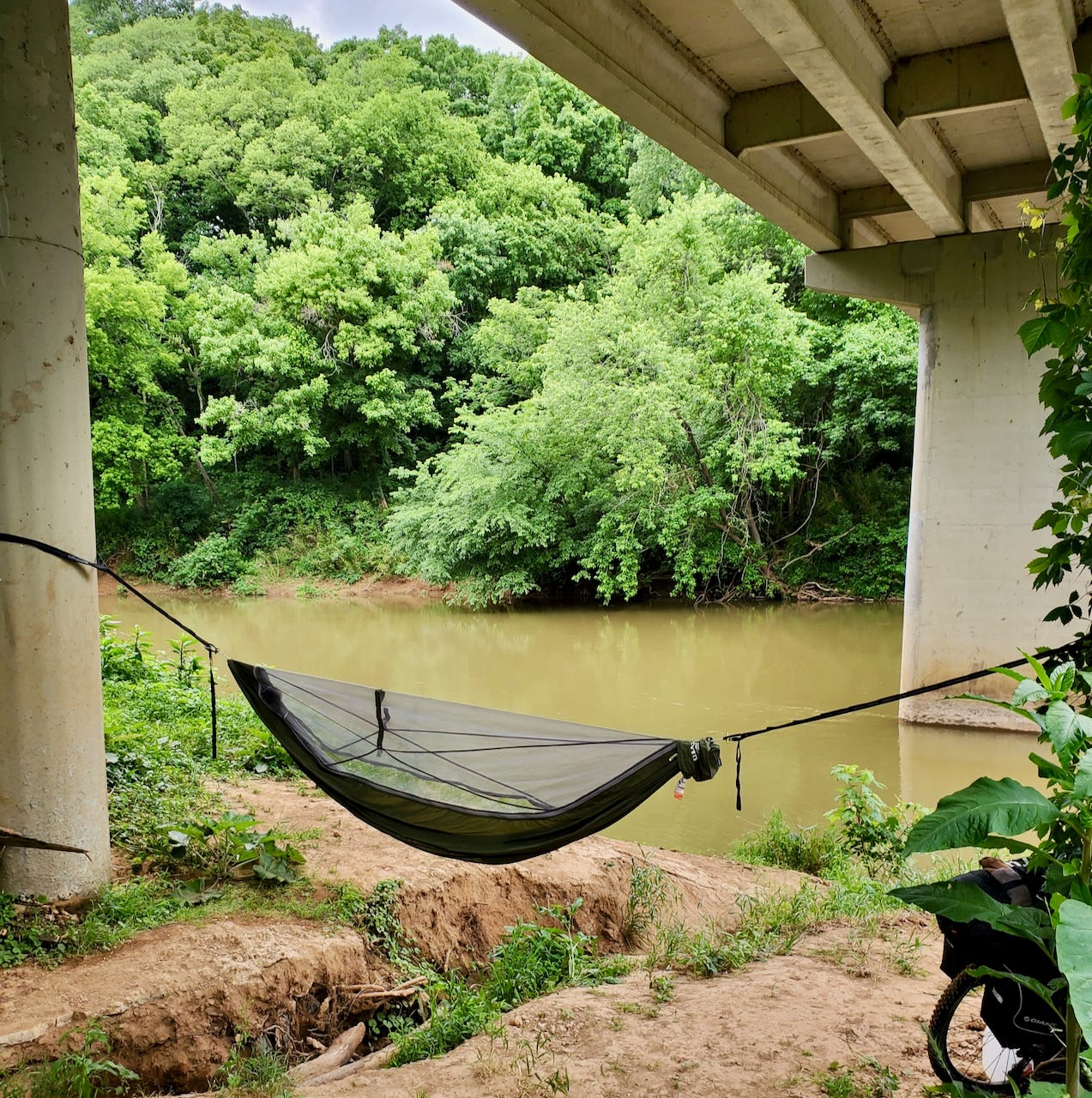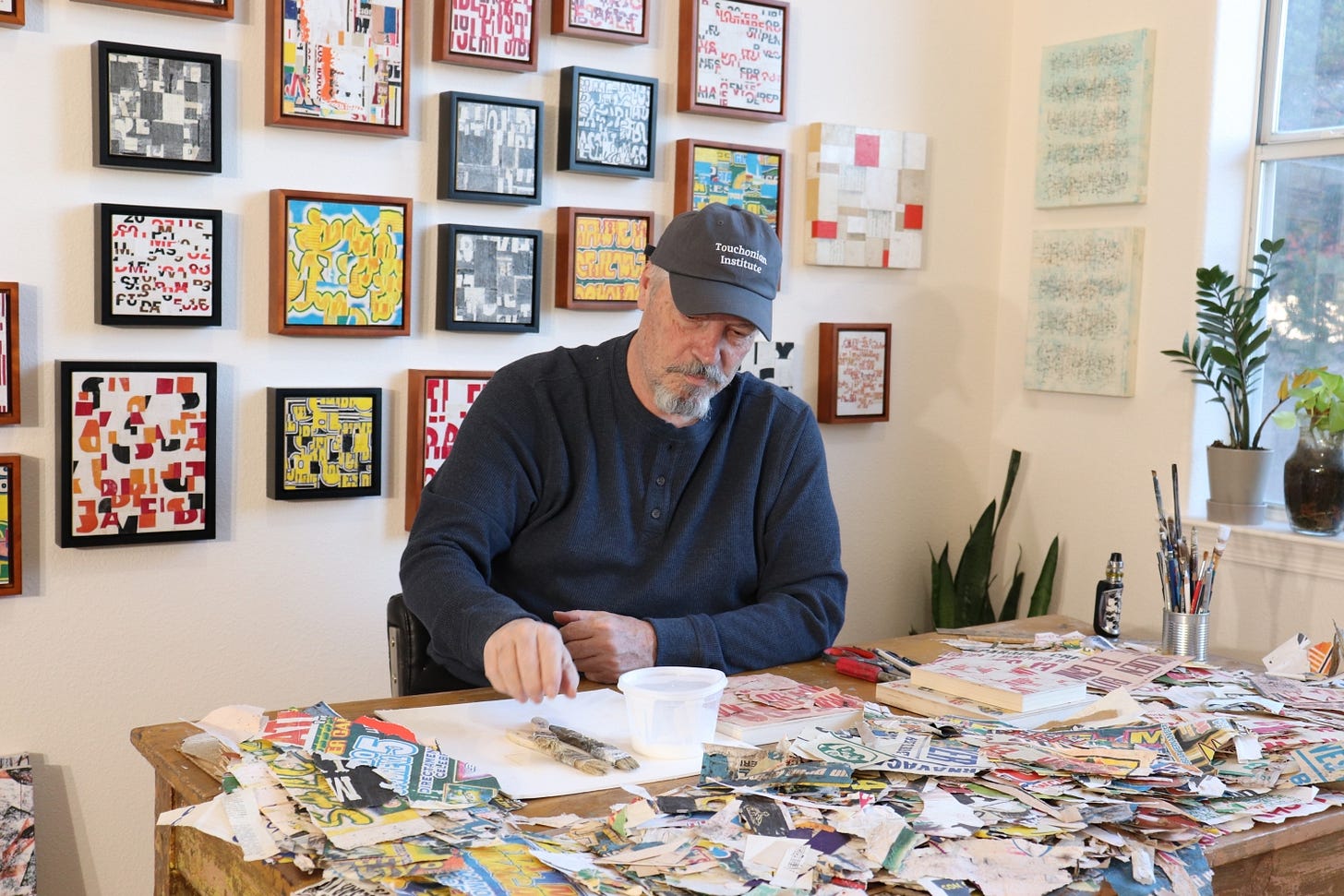Hello everyone,
Welcome to Issue #136 of CAFÉ ANNE!
Just a short note this week. First, we have the results of last week’s reader survey, in which I asked whether, after 26 installments, I should continue writing “Eric Adams Watch” to track the NYC mayor’s delightfully bizarre antics—in the event he resigns.
Two-thirds said yes, keep it going! Which, funny enough, is roughly same percentage of New Yorkers who said in a Marist poll last week that they’d like to see the mayor step down!
In other news, huge I’m-Dying-to-See-Megalopolis-But-No-One-Will-Go-With-Me shoutouts to this week’s newest paid subscribers Helen B., Charles P., Shenval, Susan D., Bob H., Elizabeth M., Gupreet E., Chelewon, Jen S., Paul B., Rich I. and also Philip C. who sent a sweet donation via Paypal. That’s enough $$$ to watch this supposedly terrible movie by myself 30 times! And as you know, while CAFÉ ANNE will always be 100% free, I cannot continue without the support of those who pay—many thanks to you!
I am very excited for this week’s issue, of course. We’ve got a strange tale of one artist who adopted another artist. While it’s not a NYC story, I do think it’s very much a CAFÉ ANNE story. Please enjoy.
Regards!
Anne
The following are paid advertisements from CAFÉ ANNE sponsors.
ATTENTION ENTREPRENEURS AND STARTUP BUSINESSES
You are invited to a FREE virtual small business pitch contest like no other. "The Pitch Show” contestants are startups pitching alternative, progressive businesses. They want to make money, but also give back to their community. The audience votes on who wins cash prizes. You will hear four great pitches and can win cool prizes in a trivia contest. The online All Hallow’s Eve Contest is Wednesday, October 30 from 6:30 to 8:30 pm. Learn more about The Pitch Show and get your FREE tickets here.
FOR ANYONE WHO HAS MADE A CRAZY LIFE DECISION…
…Or would like to read about mine: full-time working American mom takes a small life detour and moves with her family to Nigeria in pursuit of a role with her husband’s company. I invite ya’ll to join our expat mayhem (from a safe reading location where you won’t be kidnapped!) via my free Substack, “The Real Housewife of Nigeria”. Subscribe today!
A LEAP OF FAITH
Following from last week’s ad, a change of plan. This is your last chance to take a leap of faith by paying $70 without knowing why, before the amount REDUCES!! (Rice & chessboard: $10 + $20 + $40 = $70; Golden ratio: $10 + $10 + $20 = $40). Pay here. Thanks.
Interested in advertising your product/service, or promoting your own newsletter in CAFÉ ANNE? Click here for details.
FEATURE
A Tale of Two Artists
Last month, after I ran a story looking at how New Yorkers think about panhandlers ("To Give or Not to Give? Begging the Question"), I got an interesting comment from a reader, Cecil Touchon, in Albuquerque, New Mexico.
"A year and a half ago, my wife and I decided to help a specific guy at a homeless shelter," he wrote. "For me, it was an experiment. It is a long, ongoing story, but I invited him to live with me in my studio and said I would dedicate whatever it took, as if he were one of my kids, to get him back on his feet and into society."
Of course I had to hear more!
Last week, I enjoyed a long chat over Zoom with Cecil and J, the 42-year-old man he informally “adopted,” for lack of a better word, in April 2023.
Cecil and J were sitting together in Cecil's kitchen. J, who has been going by a single initial since he was 14, is a very private person and did not want me to include a screen shot from the call, but said it was okay to describe him. He is a Very Handsome Feller (VHF) who looks like Jesus, if Jesus was an Italian with a big Afro. He speaks slowly and carefully. Cecil is a 68-year-old artist with a silver fox look, and a bit of a chatterbox. They both vaped through the entire interview and smiled and nodded at each other’s comments.
Reader, the story they told me was NOTHING like what I expected. I enjoyed hearing their tale, and hope you do too!
When the interview began, J and Cecil weren't sure how to proceed, so I reassured them. "This will be like I just met you in a bar or something," I said. "And you're telling me your story."
"Except neither of us are drunk," said Cecil.
"It's a little early," said J.
"I am also not drunk," I declared.
I first wanted to hear about their respective histories, and flipped a coin to determine who went first.
"Tails. It's J!" I said.
"I get the painful part first? Okay, let's do it," said J.
J grew up in St. Petersburg, Florida. He was a quiet kid. "I didn't get along with much of anybody, and stayed to myself a lot," he said.
His mom and step-dad both worked for the city and were evangelical Christians.
"Was it a pretty good childhood?" I asked.
"No," said J. "Severe trauma, abuse. I had a real bad childhood."
He left home at 15, lived on the streets and then in a cheap motel with fellow teens.
"I got in a lot of trouble, did a lot of bad stuff, ended up getting locked up for a year in juvey," he said. "I also had the religious thing going on. I spent a lot of time after I was locked up trying to figure stuff out. 'Why is this happening to me?' So I got really deep into spirituality.”
He took construction jobs and made a decent living as a contractor, bouncing from state to state. But it was rough going.
"I spent a lot of years trying to fix everything around me, thinking that's what would stop me from hurting," he said. "And then that only blows up in your face and makes you hurt more. I destroyed every relationship I had. I walked away from every person, thinking that they were unfixable, after berating them with all the things wrong in their life."
He was living in his car, trying to restart once again, when he had a strange dream.
"I was walking through the woods," he said, "and an older version of myself was sitting in the woods, and told me to go West."
J decided he was meant take a solo journey—by foot and bicycle—across the country, traveling as the spirit moved him. He set out with camping gear and his life’s savings—$2500—in his pocket.
"When I got to Birmingham, Alabama, somebody picked my pocket and took all the money," he said. "That was two weeks in. So the universe was like, ‘OK, you want it? You got it!’"
J worked his way west, on farms and doing construction, through Tennessee, Kentucky, Missouri and Kansas to New Mexico.
In spring, 2023. he hit U.S. Route 60, south of Albuquerque. "It was nothing but desert," he said. "Strong winds, no water, no food. I traveled on that road for two days, and started getting really sick."
Exhausted and starving, he made his way to Albuquerque where he stayed in a homeless shelter for the first time, and then made his way to another shelter in Santa Fe.
"And that's when I met Ed, a friend of Cecil's, just sitting outside," said J. "We start talking and shooting the s—, and he's like, 'Hey, I got a friend that you might be interested in meeting.'"
Ed used to be Cecil's acupuncturist. Now, like J, he was a wanderer. He occasionally called Cecil when he needed help. Ed didn't have a cell phone at the time, so he asked J to make the call. Cecil responded immediately.
"He came within a couple hours from Albuquerque to Santa Fe and picked us up, took us to eat, and we started hanging out." said J.
Cecil and J hit it off.
“We had lunch," said Cecil. "We took the whole gang out for something to eat. As a spiritual person, I'll occasionally throw a little bait out to see what kind of response I get from different people, to see if I see some spiritual depth in there. And J, I immediately got it that, this guy's at least partially awakened, possibly more awakened than that."
Cecil's wife Rosalia was along for the trip. "And so my wife and I talked about it, and she felt it too," said Cecil. "And so between ourselves, my wife and I, we kind of came up with conditions to offer J an opportunity. I basically told J, 'I'm going to take care of you until you're on your feet.’”
Cecil understood this might be challenging. "Somebody on the road, or on the street, you get used to that kind of life, and it's not an easy job to get back in the world and get an apartment and get a job and do all this other s—," he said. "That's why people live on the street, you know. My wife gets mad at me when I say this, but most artists would be street people if they didn't need a place to keep their stuff."
"Or, like my friends and I always said, ‘Artists would be homeless if they didn't have girlfriends!’” added J.
"Anyway, we presented that to J," said Cecil. "He was a little confused. Like, ‘What are these people trying to pull on me here?’"
"From a lifetime of traveling through various cities, you see both the good and the bad," J said. "When people offer you something for nothing, there's a catch coming. That was a lot of my suspicion."
"So what was your first impression of Cecil?" I asked J.
"Being on the spiritual path, I like to play the spiritual game, just to see where everybody stands," said J. "And immediately I was like, ‘Oh, this guy gets it.’ And even within the conversation, there were a couple of these synchronicity moments, where he and I would either say the same thing at the same time, or make the same hand movement at the same time, where I was like, 'Oh, there's definitely something here.'"
"Which is interesting," Cecil broke in. "Because the whole spirit world that people live in is happening below the surface of things, and only the spiritual people that are pretty awake see that part. And you can feel that out in other people pretty rapidly, don't you think?"
"Yeah, if you're aware of it, it's like vision," said J. "I mean, it's as easy as looking."
"Easy as using your eyes," said Cecil.
Reader, I have to admit, I had no idea what they were talking about!
My next question for Cecil was the obvious one: why did he offer to help?
His response: he didn't see J as an aimless vagabond, but as a peer on a legit spiritual quest.
"Among the Sufis—and I'm an initiate in a Sufi order—there's the dervish community, which are these people that are just following the divine impulse inside of themselves, wherever it leads them, without question and without regard," said Cecil. "It's the way that they surrender themselves to the divine harmony of things, because you don't know what's going to happen."
"And so the idea of only taking a step when you feel the divine impulse to do it, you can't work at a regular job,” he continued. “You have to live in that level of freedom where your movement is unhindered by anything except the divine response that you feel inside of yourself."
By now I was thoroughly confused. "So if that's a valid path, why offer J an alternative?" I asked.
"I don't think it was an alternative," J interrupted. "It was more that I am an artist, and it was more a connection on that level, and the fact that I was sick. The offer was always that I can just take off and do whatever I want. But if I wanted to stick around for a while, and wanted an art career, he would help me the entire way through it."
"So Cecil, why did you do that?" I repeated my original question.
J answered for Cecil a second time. "Why does the artist do an experiment?" he said. "He told me specifically—because I asked the same question—and it's an experiment! So I asked him if he could put me into his catalog of work as a piece of art."
"As a performance piece!" said Cecil.
"And did you do that, Cecil?" I asked.
"Well, here he is, my living project!" said Cecil.
After J moved in with Cecil and Rosalia, the first condition Cecil laid down was that J cut his long dreadlocks. "To able to get a job in a conservative area like Albuquerque," he said.
"The cutting of the hair felt really symbolic," J added. "And it made sense at that moment. Basically it's, 'Okay, cut off that past, and let's start fresh and build something.'"
Cecil, who didn’t find commercial success as artist until he was in his mid-50s, set about teaching J how to collage, and passed on his hard-won insights about how to make art that sells. "The fact is, artists are going to make art no matter what," he said. "And the fact that there is a market, and you can sell enough work to live off of it, why shouldn't you do that? I mean, that's just smart to do, as long as you're not compromising your vision and your artistic practice."

Until that point, J's artistic efforts had been decidedly, well, non-commercial. "I am an artist the same way a Buddhist is a Buddhist," he said. 'The idea of being an artist as like, an art-er, or as a profession—that's very strange to me."
"It'd be like being a professional Buddhist!" said Cecil.
"Right!" said J. "To me, life is a performance art. Since I was young enough to remember, I've had an autistic level of obsession with story and the art of storytelling. So even when I was a child, I kind of contrived my life to be a good story, regardless of how much I have to suffer for it. So if I'm painting or sculpting or making a collage, or if I'm writing poetry, or gathering wood out in the forest or stacking rocks after I leave the campsite, it's all this big picture. I'm living out the art."
"He's living art! He's living it out, as an artistic expression," said Cecil.
For the first few weeks, staying with Cecil and working with him in the studio was like attending a "very private art school," said J. "And he gave me tons and tons of books to read, and that was awesome. So it was a really, really nice experience—until I had to go start working a job."
Finding employment and, eventually, his own apartment, was another condition Cecil required from J. But laying the foundation to apply for work—obtaining a Social Security card, an ID with an address, and a bank account, for example—was surprisingly complicated. And it took three months to land a job.
"What kinds of jobs were you applying for?" I asked.
"Maintenance work, any kind of construction. Anything where I had skills," said J. "But I have jobs on my resume from like, four different states, so nobody trusted that I would stick around for any amount of time."
He finally got a position with a bathroom remodeling company and, in August 2023, rented his own apartment.
Cecil continues to mentor J, teaching him skills such as self-promotion and networking with other artists. "Cecil taught me that keeping completely to myself and not sharing anything with anyone is probably a bad way to go," said J.
So that's a good outcome, right? I asked J to compare his new life to what he endured during his grueling solo trek across the country. And boy, did his answer surprise me!
"City life is very discouraging," he said. "Compared to 18 months ago, I was in the forest, you know, being a spiritual being just amongst all the trees and animals. So it's a very harsh contrast. But for me, personally, it's all for a purpose. I know that this environment is temporary until I can get to where I'm going."
The idea is that someday J will return to his wandering. Only now, he'll be able to support himself with his art.
Cecil was nodding enthusiastically. "I told J, it's going to take time, but if you do this, then you will learn how to become self-sustaining at it,” he said. “It will bring enough money so you can go about your life doing what you want. Which is the ideal—to get to that point. To live the dervish life."
"To be rich enough to be a dervish," said J.
"Exactly!" said Cecil. "To be rich enough to be homeless in America!"
Cecil grew up in the suburbs of St. Louis, also the son of blue-collar parents. He knew he wanted to be an artist from the time he was twelve. It was a long road. When he was 23, he married a nurse ten years his senior. She had two kids, and over time, they took on seven foster kids.
"And then later I met my second wife, Rosalia," Cecil continued. "So I had two kids with my first wife, and then one kid with my second wife, and they're all grown up at this point. But I got accustomed to raising kids."
Over the decades, he worked as a waiter, house painter and SEO consultant. He's been a full-time artist the last 20 years, however, and has enjoyed teaching J what it takes to be a self-sustaining artist, a topic he also covers in his Substack newsletter, The Touchonian.
"Cecil," I said, "I'm curious what you've gotten out of this experience with J. What's in it for you?”
"I've got a new friend," said Cecil. "And he's quiet, and he stays to himself, and he prefers not to bother anybody. So I noticed that I have to be kind of preemptive a lot of the time, making sure we maintain a relationship."
"Sorry, it's a point of frustration in every relationship I have," said J.
"But I'm also like that myself," said Cecil. "I mean, I don't care if I talk to anybody for a month at a time. I'm happy just staying in my studio, doing my thing. I'm trying to get better at that myself. So J and I figured out a way to hang out on Wednesday evenings.”
I asked if they ever fought.
"I can't remember that happening," said Cecil. "I mean, have we ever really had a cross word with each other?"
"No," said J. "I don't have any expectation of Cecil, and I don't think he has any expectation of me. So we're free to do whatever we want. Where disputes usually come into play, I think, is when someone expects something of the other, rather than just letting them be who they are.'"
"People have a hard time with that—they really do!" I laughed.
"But it's really so much easier," said Cecil.
"It takes no effort," J agreed. "It's wonderful."
"So it’s all worked out." I said. "And J, are you feeling itchy now to move on?”
J expects he'll stick around another two years, but there's an end in sight. "The trail head is out ahead of me, and I know it's there," he said. "So when I'm ready, I'll be ready."
ITEMS OF INTEREST
The Perfect eBike For NYC Living
Eric Adams Would Hate Suzanne Vega’s New “Rats” Video!
Cheetos Food Dye Turns Mice Transparent
Fascinating Deep Dive Into AI Slop
CAFÉ ANNE is a free weekly newsletter created by Brooklyn journalist Anne Kadet. Subscribe to get the latest issue every Monday!





















That’s is so fascinating. These two “artistic souls” found each other and bonded in a special way, We need more Cecil’s in the world.
"Exactly!" said Cecil. "To be rich enough to be homeless in America!"
ah! the dream